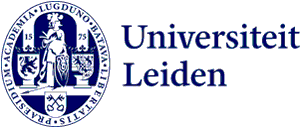Science, Society and Self
The FSW Honours College offers you an interactive Honours track, alongside your regular bachelor’s degree programme.
Science, Society and Self
The interdisciplinary Honours College track Science, Society and Self provides students the opportunity to broaden and deepen their horizons on top of their regular bachelor program. Anchored in the Faculty of Social and Behavioral Sciences, this track explores how science, society and self can be consciously and strategically aligned to solve complex and interwoven problems.

About us
Although science, society and self are interdependent, they are commonly thought of as separate domains. This limits our understanding of the word, and the way we navigate in it. Our track explores how science, society and self can be consciously and strategically aligned to address the broader and deeper challenges of the day, such as climate change and growing inequality. The starting point of this is inquiry, to ask different, more profound questions about ourselves and others.
Rather than being more of the same, our track offers education that is interactive, interdisciplinary, and playful, oriented towards the personal and professional development of students. The curriculum fosters a creative environment for new thinking and new practice. We depolarize science, society and self by listening deeply to others, and the way they interpret and experience the world differently. This enhances our capacity to make an impact.
Students have a great deal of freedom to design their trajectory based on their own interests.
About you
Our track is suited for students that are willing and able to broaden and deepen their horizon on top of their regular bachelor program. We value inclusion, motivation, and commitment. We welcome students from all walks of life. Students are expected to possess sufficient, yet not excellent English language skills. Rather than looking for students whose primary reason to join is to upgrade their CV, we are interested in students who want to develop themselves on a personal and professional level.
Students are expected to invest approximately 8 hours of study per week during their regular bachelor program. Students are expected to frequently commute to Leiden and the Hague. This requires responsible time management and clear communication. To find a healthy balance between a regular bachelor program and extra-curricular Honours College education, we offer personal coaching. We help students reflect on their goals and ways to achieve them.
Main goals
-
can explain how academic disciplines study and understand the world differently
-
can reflect on the existing and potential relationship between science, society and self
-
has gained the competences and mindset to align science, society and self in the everyday
-
can take ownership of their own lives by formulating goals and ways to achieve them
Caroline Zanders
Caroline started the master's specialisation Child & Adolescence Psychology this year.

'In the 2nd and 3rd year of my bachelor’s, I joined the Honours College. I received an e-mail that I qualified for Honours College, but I didn’t really feel the need for it. When I accompanied my partner to an information session, I suddenly thought: this might be fun. That was because I noticed that Honours isn’t really that focused on grades, while I expected it to be very scholastic. You’re going to make your own choices at Honours, you can decide for yourself what you do. From everything I learned at the Honours College, I take something with me in my daily life. All those things really changed my mindset. For example, if I read something about juvenile delinquency or terrorism, I used to think: that’s scary. But now I think: there has to be something behind it, how would someone like that feel? If you’re motivated to broaden your world view, then Honours College is something for you. It isn’t necessarily about good study results. I can recommend it to everyone!'
Sophie 't Hart
Sophie is a third-year Psychology student, president of study association Labyrint and Honours student.

'I’ve always enjoyed filling up my time with many different things. Because of my year as a board member of Labyrint, I’m allowed some delay in my Honours programme. I’m doing a course about effective management. I learn a lot about how to deal with my fellow board members, but also about my own strengths and weaknesses. What I like most about Honours is that you work in small groups to find solutions for real-world problems. It’s more tangible than the broad, theoretical knowledge I’m gaining in my bachelor’s. I like it a lot to learn more about how students from other programmes view the same problem. Don’t be afraid that it’s a lot of work. Honours College might sound a little intense, but I don’t see it as extra school but rather as an investment in myself.'
Ruslan
Ruslan is a second-year Cultural Anthropology and Development Sociology student from Kazakhstan. In addition to his main programme, he is enrolled in Honours College.

'The Honours programme is different for everyone, because you choose your own courses.'
'The Personal and Professional Development course is my favourite. It has had the most impact on me: the course gave me the instruments and time for reflection. It helped me structure my goals for my own academic future. And I worked on my professional fears: what will I do and become after finishing my studies? Honours showed me that I have a developed skillset that could help me get into other fields besides anthropology. I also do a course about programming, and although it’s not connected to my main studies, I really like it. It helps me keep up my habits! Don’t miss the educational opportunity of the Honours College. For me, it started as a challenge for myself. I would say: go for it and see for yourself whether Honours is something for you.'



